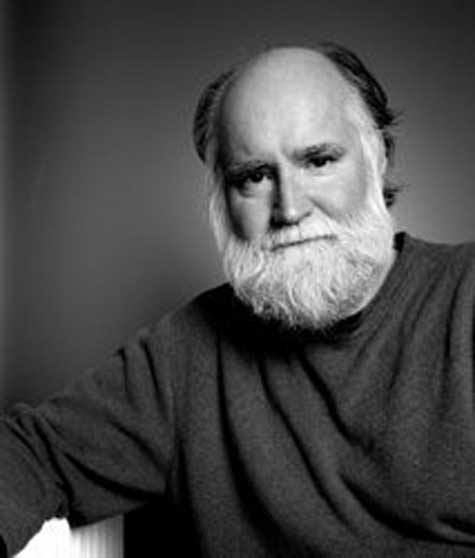 YOUR SMARTEST NEW FRIEND Nicholson Baker. |
Nicholson Baker is the best kind of teacher. One who is passionate about his subject. One who knows what he’s talking about. And one who knows how to share ideas and information without boring his students, or patronizing them. In Baker’s latest novel, The Anthologist (Simon & Schuster), he achieves this last point by conveying his concepts through the voice of Paul Chowder, a lovelorn poet who is hard at work -- yet hardly working -- on the introduction to an anthology of rhyming poetry.
Chowder displays a personality type with which too many of us may be familiar. He’s clearly intelligent, a bit funny, dedicated, self-deprecating. He’s also paralyzed by self-doubt, not able to get motivated, and hapless.
He is even all of that, at once (forgive the length):
It’s time for bed. And here’s what I’m going to do. I’m going to get in bed, and I don’t have anyone to sleep with now, so what I do is I sleep with my books. And I know that’s kind of weird and solitary and pathetic. But if you think about it, it’s very cozy. Over a period of four, five, six, seven, nine, twenty nights of sleeping, you’ve taken all these books to bed with you, and you fall asleep, and the books are there.
Of course it was better when I had Roz in the bed with me. But I don’t have her now. Her warm soft self was extremely comforting, and it’s not there. I could cup her upward hip or one of her dozing boobies with my hand. Good times. That cupping is rhyme -- the felt matching of two congruent shapes. And now where she would sleep are these books, and they’re lying there in leaning piles, and sometimes they slip off and nudge me in the eyebrow with one of their corners.
Reading Baker’s prose is like listening to one of your smartest friends speak. Chowder’s voice is energy-charged, intelligent, and (sometimes cripplingly) self-aware, employing colloquialisms to make non-colloquial points like this one: “At some point you have to set aside snobbery and what you think is culture and recognize that any random episode of Friends is probably better, more uplifting for the human spirit, than ninety-nine percent of the poetry or drama or fiction or history ever published. Of course yes, Tolstoy and of course yes Keats and blah blah and yes indeed of course yes.”
By adopting this conversational tone, by allowing for digressions -- and many of them! -- Baker is able to share, through his narrator, many fascinating things about poetry, its rhythms and rhymes, and its practitioners, without losing his audience. We learn that W.H. Auden was on speed (that almost all successful poets were addicts, in fact), that Louise Bogan and Ted Roethke had an affair, that Algernon Charles Swinburne was “the greatest rhymer who ever lived.” (Keep a piece of paper close at hand to jot down the names of poets about whom you want to learn more.)
One of his most endearing, and effective, techniques is the setting of poetry to music to demonstrate emphases and lyricism. Throughout the book, the reader finds small music staffs, with notes and rests written to correspond with poetic stanzas. At other points, Baker -- who lives in South Berwick and attended the Eastman School of Music in New York many years ago -- diagrams verses to illustrate concepts of poetic meter. To show us that pentameter actually has six stresses, not five, he says: “[T]here’s a raven of rest there at the end that you’re not counting, my friend. If you say the two lines together, you’ll hear the black raven . . . ‘All human things are subject to decayCRAW! And when fate summons monarchs must obeyCRAW!’” It’s a joyous and surprising way to consider the written word. In Baker’s capable hands, what might otherwise be considered overly precious becomes original and exciting. Indeed, this book teaches us not just about the wonders of language, but about how appreciation for individual quirks can make such lessons worth learning.